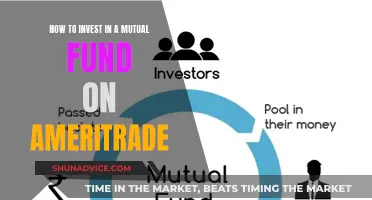
Index investing is a passive investment strategy that has proven to be a great way to grow your wealth. It is based on the observation that instead of picking individual stocks and trying to buy and sell at the right time, it is usually more profitable to invest in the stock market as a whole. This strategy, also known as index investing, involves investing in a type of fund called an index fund, which tracks a specific index – a collection of stocks with strict rules on which stocks are included and how much of each. While index investing is not a simple process, it is a tried and tested method that has proven to be effective since the first index fund was created in 1976.
| Characteristics | Values |
|---|---|
| How to invest in index funds in Europe | Through a broker, an app, or with a financial advisor |
| How to choose an index fund | Choose indices, build a portfolio, choose funds that track the indices, and adopt a buy-and-hold strategy |
| How to invest in the whole stock market of the Eurozone | Use ETFs at a low cost |
| How to choose an ETF | Look at dividend distribution, domicile, currency, size of the fund, replication strategy, and cost of the fund |
| How to start index investing | Choose the indices, build the right portfolio, choose the funds that track the indices, and adopt a buy-and-hold strategy |
| How much money is needed to start index investing | Not much; investing through an app can start from €50 |
What You'll Learn

How to choose an index fund or ETF
Index funds and ETFs have revolutionized investing, offering low-cost, diversified options for individuals to gain broad market exposure. Here are some key considerations for choosing an index fund or ETF:
Understand the Basics
Firstly, understand the basics of index funds and ETFs. Index funds are a type of mutual fund that tracks a specific market index, such as the S&P 500. They aim to replicate the performance of that index and are usually passively managed, with minimal day-to-day adjustments. ETFs (Exchange-Traded Funds), on the other hand, are funds that trade on stock exchanges like individual stocks. They offer a basket of securities, such as stocks, bonds, or commodities, and can be bought and sold throughout the trading day.
Evaluate the Investment Vehicle
When choosing between an index mutual fund and an ETF, consider the following:
- Trading Mechanism: Index mutual funds are bought and sold at the end of the trading day based on the fund's net asset value (NAV), while ETFs can be traded throughout the day on a stock exchange.
- Minimum Investment: Index mutual funds often have minimum investment requirements, whereas ETFs typically do not, making them more accessible to investors with smaller amounts to invest.
- Taxation: ETFs tend to be more tax-efficient than index mutual funds due to their structure and lower turnover.
- Fees: ETFs generally have lower expense ratios than index mutual funds, but buying and selling them may incur trading fees, depending on your brokerage.
- Liquidity: ETFs offer greater liquidity as they can be traded during market hours, while index mutual funds are bought and sold at the end of the trading day.
Structural Benefits of Index Funds
Index funds offer several structural benefits:
- Performance Surprises Minimized: Since index funds perform like the market they're tracking, any surprises in performance are kept to a minimum.
- Tax Efficiency: Index funds are often more tax-friendly than similar active funds due to lower portfolio turnover.
- Lower Fees: Passive management means lower fees for investors, as there is no need for extensive research teams or frequent trading.
- Reduced Key-Person Risk: Passive management also reduces the impact of fund manager changes or key-person risk on the overall investment strategy.
Key Traits to Look For
When evaluating index funds, Morningstar analysts Ryan Jackson and Mo'ath Almahasneh suggest looking for the following traits:
- Representative: The index fund should offer a full range of opportunities available to its actively managed fund peers.
- Diversified: Look for a wide array of holdings to minimize risk.
- Investable: The fund should invest in liquid securities that are easy to track and trade.
- Transparent: Choose a fund that tracks a clearly defined index, allowing you to anticipate its behavior across different market environments.
- Sensible: Portfolios should be driven by sound economic rationale rather than speculative strategies.
- Low Turnover: Ensure that any portfolio turnover is limited and managed by the index to minimize costs and tax implications.
Costs and Expense Ratios
As highlighted by Jackson, focus on finding the fund with the lowest costs and expense ratios. This is crucial to ensuring that fees do not eat into your investment returns over time.
Stock Selection and Weighting
Consider how the index fund selects and weights stocks. Index funds typically use either a market-cap weighting or an equal weighting approach:
- Market-Cap Weighted Funds: These funds give each stock a weighting relative to its total market capitalization, giving larger companies a greater impact on the fund's performance.
- Equal-Weighted Funds: These funds give each stock the same weighting in the portfolio, regardless of the company's size, ensuring that results are not dependent on the performance of a few large companies.
Country-Specific Considerations
Finally, consider any country-specific factors that may impact your investment. For example, in Belgium, dividends are taxed at 30%, so choosing an accumulating fund over a distributing fund may be more tax-efficient. Additionally, some countries have special tax treaties with the US, so funds domiciled in those countries may offer tax advantages.
Best Banks for Investment: Where to Invest Your Money?
You may want to see also

How to make investment decisions with confidence
Index investing, also known as passive investing, is a proven method for growing your wealth. It is based on the idea that instead of trying to pick individual stocks and time the market, it is more profitable to invest in the stock market as a whole. This approach takes the emotion out of investing and has consistently outperformed active investing.
- Understand the basics: Educate yourself about the fundamentals of index investing. Learn about the different types of indices, such as the S&P 500, EURO STOXX 50, and MSCI World. Understand the benefits of index investing, including diversification, low fees, and long-term growth potential.
- Set clear investment goals: Define your investment goals and risk tolerance. Are you investing for retirement, a specific purchase, or wealth accumulation? How much risk are you comfortable taking? These questions will help guide your investment decisions and determine the right mix of indices for your portfolio.
- Choose the right indices and funds: Select indices that align with your investment goals and diversification needs. Consider factors such as geographic coverage (e.g., developed markets, emerging markets), sector exposure (e.g., technology, financials), and sustainability criteria. Once you've chosen your indices, identify the best index funds or ETFs that track those indices. Compare fees, dividend distribution policies, and the fund provider's reputation.
- Adopt a long-term perspective: Index investing is typically a long-term strategy. Maintain a long-term view and avoid making impulsive decisions based on short-term market fluctuations. Remember that the stock market goes through ups and downs, and focus on your investment goals rather than short-term volatility.
- Consider working with a financial advisor: If you feel overwhelmed or unsure about managing your investments on your own, consider seeking guidance from a financial advisor. They can provide personalised advice, help you build a portfolio that aligns with your goals, and offer ongoing support.
- Start with a small investment: You don't need a large sum of money to start index investing. Many index funds and ETFs have low minimum investment requirements, allowing you to begin with a small amount and gradually increase your investments over time.
- Diversify your portfolio: Diversification is a key strength of index investing. By investing in a broad range of companies across different sectors and countries, you reduce the risk associated with individual stocks or markets. Diversification helps smooth out performance and increases your exposure to potential winners.
- Stay disciplined and avoid emotional decisions: Successful index investing often requires discipline and a long-term mindset. Avoid the temptation to time the market or make impulsive decisions based on fear or greed. Stick to your investment plan and maintain a buy-and-hold strategy unless there are significant changes to your financial situation or investment goals.
- Monitor your investments regularly: While index investing is a relatively passive strategy, it's important to review your portfolio periodically. Monitor the performance of your investments and rebalance your portfolio as needed to ensure it remains aligned with your goals and risk tolerance.
- Consider tax implications: Understand the tax implications of investing in index funds in your country of residence. Some countries offer tax advantages for certain types of investments or dividend distributions. Incorporate tax efficiency into your investment decisions to maximise your returns.
By following these guidelines and staying informed, you can make investment decisions with confidence when it comes to index funds in Europe. Remember that investing carries risks, and it's essential to do your own research and consult with a financial professional before committing your capital.
Smart Mutual Fund Investment Strategies for 5 Lakh Rupees
You may want to see also

The attributes and behaviours of successful investors
Index funds are a type of passive investment that mirrors the performance of a market index, such as the S&P 500. They are a popular choice for investors seeking low-cost, diversified, and passive investments that tend to outperform many higher-fee, actively traded funds. Here are some attributes and behaviours that successful investors in index funds may possess:
- Discipline and Patience: Successful investors often have the discipline to stick to a long-term investment strategy and avoid the temptation of timing the market. They understand that short-term market fluctuations are inevitable and maintain a patient, buy-and-hold approach, allowing their investments to grow over time.
- Research and Analysis: Before investing, successful investors thoroughly research and analyse index funds. They consider factors such as the geographic location of investments, the market sector, and the potential opportunities presented by the fund. They carefully examine the holdings of the fund to ensure it aligns with their investment goals and risk tolerance.
- Cost Consciousness: Index funds are known for their low fees and expense ratios. Successful investors are conscious of costs and compare expenses across different funds. They understand that keeping costs low can significantly impact their overall returns.
- Diversification: Successful investors recognise the importance of diversification and use index funds to gain exposure to a wide range of stocks or bonds. They may invest in multiple index funds to further diversify their portfolio and reduce risk.
- Professional Guidance: While index funds are considered a more straightforward investing approach, successful investors often seek professional advice from financial advisors. This guidance can help them build a diversified portfolio that aligns with their financial goals and risk tolerance.
- Open-Mindedness: Constant learning and keeping an open mind are important attributes. Successful investors read widely, not just finance and investment books, but also books on various disciplines such as management, marketing, science, and psychology. They actively seek out diverse opinions and are willing to question their own beliefs, avoiding confirmation bias and complacency.
Venture Funds That Invested in Theranos: A Comprehensive List
You may want to see also

The pros and cons of investing through a broker
There are several ways to invest in index funds in Europe, one of which is through a broker. A broker acts as a middleman, giving you access to the stock markets and allowing you to buy and sell Exchange-Traded Funds (ETFs). While this option provides flexibility and control, it also comes with certain challenges. Here are the pros and cons of investing in index funds through a broker:
Pros:
- Flexibility and Control: Investing through a broker allows you to be in full control of your investments. You can choose the specific indices and ETFs that align with your financial goals and risk tolerance. This option suits those who want to actively manage their investments and have the time, interest, and knowledge to do so.
- Diversification: With a broker, you can access a wide range of ETFs that track various indices, providing diversification across different markets, sectors, and industries. This diversification helps reduce the risk of your portfolio being significantly impacted by the performance of a single stock or asset class.
- Cost-Effectiveness: Brokers often offer low transaction costs, and you only pay a fee when you buy or sell. Additionally, index funds themselves tend to have lower management fees than actively managed funds because index fund managers take a more passive approach and trade holdings less frequently.
- Ease of Use: Some brokers provide user-friendly platforms and apps, making it convenient to manage your investments.
Cons:
- Steep Learning Curve: Managing your own portfolio through a broker can be complex, especially for beginners. You need to navigate the process of choosing indices, building a portfolio, selecting ETFs, understanding taxes, and rebalancing your portfolio. This requires substantial financial knowledge and time commitment.
- Time-Consuming: Investing through a broker can be time-consuming, especially if you invest regularly. You need to transfer funds, calculate the number of shares to buy, place orders, and monitor your portfolio's performance.
- Costly for Regular Investing: Brokers typically charge a fee per transaction, which can be expensive if you invest small amounts monthly. This fee structure may not align with a long-term investment strategy that involves regular, smaller contributions.
- Discipline and Emotional Challenges: Investing through a broker requires discipline to maintain your investment strategy, especially during market downturns. It can be emotionally challenging to stick to your plan and avoid the temptation to time the market or make impulsive decisions.
- Conflicting Incentives: Brokers earn money from trades, so they may incentivize frequent trading through their platforms. This conflicts with the buy-and-hold strategy often associated with index investing.
In summary, investing in index funds through a broker provides flexibility and control but demands more time, knowledge, and discipline from the investor. It is essential to consider your financial goals, risk tolerance, and the amount of time and effort you are willing to dedicate to managing your investments when deciding whether to invest through a broker.
Bond Index Funds: When to Invest and Why
You may want to see also

How to invest in index funds for tax efficiency
Index funds are a great way to grow your wealth, but it's also important to consider the tax implications. Here are some tips on how to invest in index funds for tax efficiency:
- Understand the tax system: Before investing, it's crucial to understand the tax system in your country. For example, some countries like Belgium don't tax profits from investments in stocks, making index investing particularly tax-efficient.
- Choose the right type of account: There are two main types of investment accounts: taxable and tax-advantaged. Taxable accounts, such as brokerage accounts, offer more flexibility but have different tax implications than tax-advantaged accounts like IRAs and 401(k)s. Consider which type of account will give you the most tax benefits.
- Invest for the long term: Holding investments for the long term can result in more favourable tax treatment. In many countries, investments held for more than a year are subject to long-term capital gains tax rates, which are often lower than short-term capital gains tax rates.
- Consider tax-efficient investments: Some investments are naturally more tax-efficient than others. For example, municipal bonds and treasury securities may have tax advantages. Index funds themselves are often tax-efficient because they have a low turnover ratio and produce lower dividends than actively managed funds.
- Use tax-loss harvesting: If you have investments that have lost value, you can sell them to offset the taxable gains from profitable investments. This strategy, known as tax-loss harvesting, can help reduce your overall tax bill.
- Consult a professional: If you're unsure about the best way to invest tax-efficiently, consider consulting a financial advisor or tax specialist. They can help you navigate the complex world of taxes and investments to make the most of your money.
Remember, the specific tax implications can vary depending on your country of residence and the specific regulations in place. It's always a good idea to do your own research and consult with professionals before making any investment decisions.
Cannabis Investment Opportunities: Vanguard Mutual Fund Options
You may want to see also
Frequently asked questions
The easiest way to invest in index funds in Europe is to use an app like Curvo, which simplifies the process and manages your investments for you. Alternatively, you can invest through a broker or with the guidance of a financial advisor.
Index investing, also known as passive investing, is a proven strategy for growing your wealth. Instead of trying to pick individual stocks and time the market, you invest in the stock market as a whole, which has historically provided better returns than active investing. Index funds are also more cost-effective, as they have lower fees than active funds.
You can start investing in index funds with a small amount of money. For example, investing through the Curvo app only requires a minimum of €50, and you can buy shares of ETFs for less than €100.
When choosing an index fund or ETF, consider factors such as the distribution of dividends, domicile, currency, size of the fund, replication strategy, and cost. You can use resources like justETF.com to find and compare different ETFs available in Europe.







